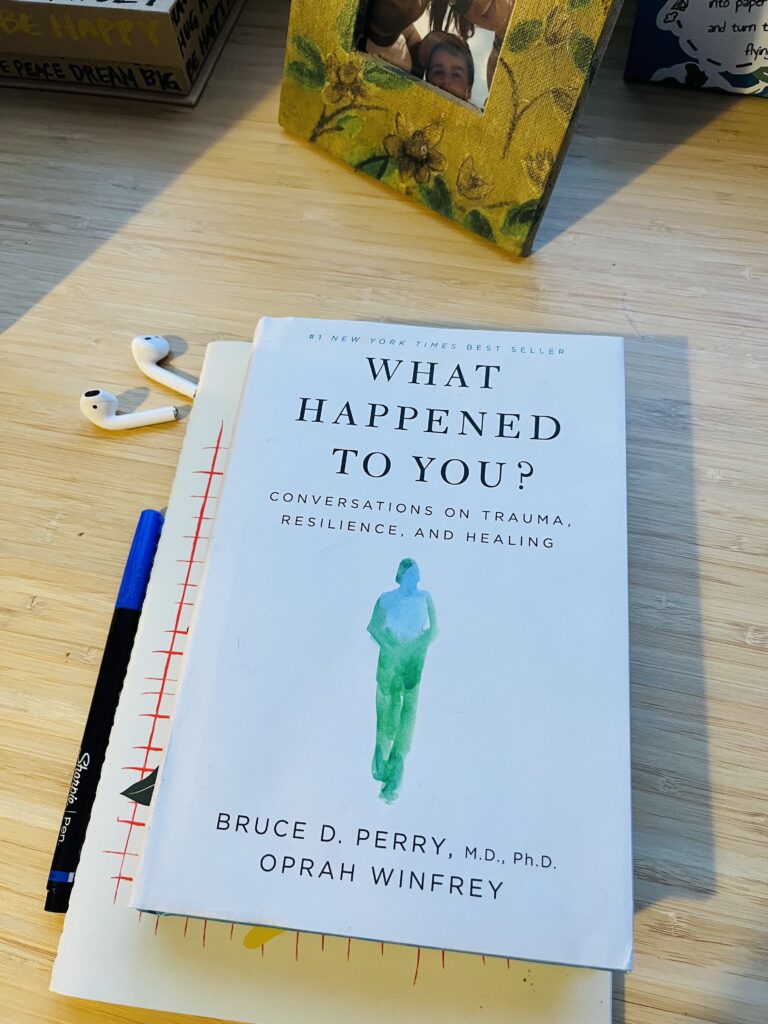
Title: What Happened to You?: Conversations on Trauma, Resilience, and Healing
Authors: Dr. Bruce D. Perry, M.D., Ph.D. and Oprah Winfrey
Date Read: February 17, 2023
Two snaps!
Snapshot of the Book
This powerful collaboration reframes our understanding of trauma and human behavior. Rather than asking "What's wrong with you?" they propose asking "What happened to you?" - a shift that opens doors to healing and understanding.
The book explores how early experiences shape trauma responses and brain processing. Experiences are sequentially processed from brainstem (feeling) to cortex (thinking), and early childhood experiences predict later trauma responses. The authors discuss how trauma-related behaviors are often misunderstood in educational and justice systems.
A notable insight: "The hyper-vigilance of the Alert state is mistaken for ADHD, the resistance and defiance of Alarm and Fear get labeled as oppositional defiant disorder..."
Snapshot of the Book in My Classroom
This book has profound implications for educators. Understanding trauma-informed teaching helps us recognize that disruptive behavior often stems from past experiences, not defiance. Students cannot learn when their nervous systems are dysregulated, making emotional safety a prerequisite for academic success.
The concept of "regulation before reasoning" is particularly relevant for classroom management. The book helps us understand that what we often interpret as behavioral problems may actually be trauma responses that require empathy and support rather than punishment.
Snapshot of the Book in My Life
Reading this during a particularly challenging school year provided crucial perspective. It reminded me that the students who need the most support often express that need in ways that can feel frustrating or challenging to teachers.
The emphasis on connection and relationships as healing mechanisms reinforced my belief in the power of authentic teacher-student relationships. Sometimes, simply being a safe, consistent presence can be transformative. The book offers an empathetic approach to understanding human behavior that extends far beyond the classroom.

